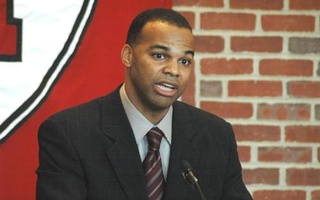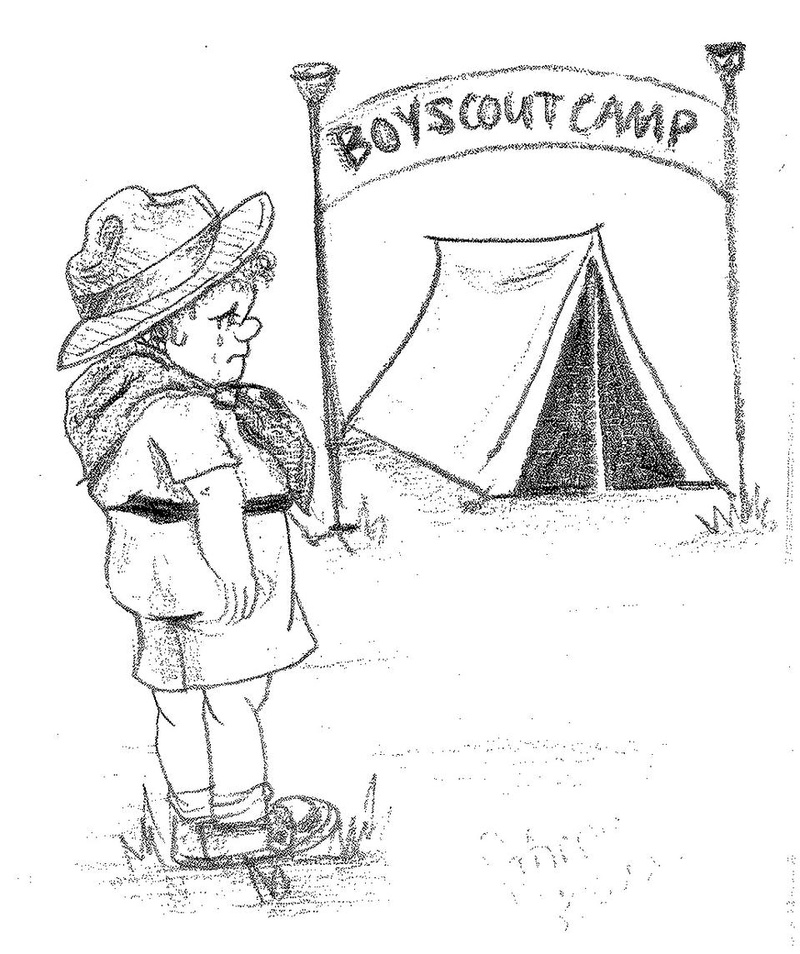This is the fourth instalment in a series of online-only Roundtables. This new content form from the Crimson Editorial Board seeks to present a diverse array of high-quality student opinion on thought-provoking issues.
If you would like to submit an opinion for this week's Roundtable topic "Are there serious deficiencies with Harvard's mental health services?" please e-mail your 200-300 word opinion to hpickerell@college.harvard.edu before Wednesday, Feb. 27 at 6 pm .
Democracy, the Ugly Kid
Let me be clear: I am emphatically opposed to the Boy Scouts of America’s policy of excluding openly gay individuals from its membership. Yes, the policy further isoaltesadolescents questioning their sexualities. Yes, it is considered by many to be “backwards” in a progressive age. Yes, such a policy contradicts the Scouts’ own oath to “help other people at all times.”
Nevertheless, I even more emphatically support BSA’s right to hold such views. Boy Scouts of America is a private, non-governmental organization supported entirely by donations. As such, the Supreme Court has held in Boy Scouts of America v. Dale that their freedom of association allows them to exclude members that hinder the group’s ability to “advocate public or private viewpoints.” Where opponents of the Dale decision err, though, is their assumption that the freedom of association is a blanket protection of the organization from individual or group efforts to change these values. Wrong. Freedom of association protects BSA only from a government intervention. Actions such as Eagle Scouts renouncing their medals or legislation banning the organization’s tax exemption are still rightfully allowed.
Freedom of association, a derivative of the freedom of speech, states that “Congress shall make no law” infringing on individual or collective rights. Let’s imagine that Congress disbanded any organization that expelled or banned members on the basis of race, religion, sexual orientation, or gender. How many churches, country clubs, cultural groups, fraternities, sororities, and political parties must the government then dismantle to prove its point, and with what consequences for the civic life of our country? The right to band together around a set of views—savory or unsavory, radical or conservative—is the fundamental cornerstone of democracy that we must consciously guard against trampling, as progressive as our intent may be.
Democracy is not the homecoming queen; it’s the ugly kid in the back of the room that we still include at recess. Democracy is tough and ugly in a country as large and diverse as ours. At times, it is easy to dismiss others’ viewpoints as “incorrect” or “un-American,” but we must always, as Franklin stated, “defend to the death” their right to hold those views, because like it or not, they are equally sovereign parts in this centuries-long project of self-rule.
Lisa Wang ’14 is a government concentrator in Pforzheimer House.
The Boy Scouts of America and the Limits of Free Speech
When the Supreme Court decided Boy Scouts of America v. Dale in 2000, it did so by the thinnest possible margin—a 5/4 split. At issue in the case was whether a New Jersey ordinance mandating nondiscrimination in places of public accommodation unconstitutionally infringed upon the Scout’s freedom of speech. The controversial ruling ultimately upheld the Scout’s discriminatory ban on gay members, deeming it a form of expressive association protected under the First Amendment.
From the day it was decided, Dale stood out like a sore thumb against the remainder of the Court’s free speech jurisprudence. As Justice Stevens noted in his dissent, it marked the first time in the Court’s entire history that “a claimed right to associate in the selection of members prevailed in the face of a State’s antidiscrimination law.”
What is worse, in the 13 years that have elapsed since Dale’s issuance, there has arisen the mistaken belief, especially among communities of so-called intelligent people, that the Constitution generally affords all private organizations the right to exclude any person from membership on the basis of freedom of association. This is false. Anyone who claims otherwise has either not read Dale, or has misinterpreted the ruling.
As the majority opinion clearly noted, state laws prohibiting membership discrimination are wholly germane unless—and this is the key to understanding Dale—“it affects in a significant way the group’s ability to advocate public or private viewpoints,” in which case the ordinance would fail constitutional muster. It is for this reason that Chief Justice Rehnquist, writing for the majority, keenly noted the Court is “obligated to independently review the factual record.” In other words, the Court must carefully attend to the facts and decide for itself, without deference to a group’s opinion, whether compliance with a state’s anti-discrimination law affects the group’s ability to express a viewpoint in a significant way.
This legal standard balances the state’s compelling interest in eradicating the socially corrosive effects of invidious discrimination, against a private organization’s interest in freedom of expression. Although the requirement may seem highly subjective, it has been a fairly high bar for most of the Court’s history, placing a considerable onus on private organizations to prove their core expressive functions are seriously curtailed through compliance with generally applicable non-discrimination ordinances. Because this legal standard has teeth, most private organizations remain, to this day, prohibited in many states from discriminating in membership on the basis of a litany of categories. It is only when it comes to gay people that the legal standard losses its force.
The reason for this seeming anomaly rests, as Justice Stevens noted, not in logic, but in the atavistic attitudes of his colleagues. Luckily for those of us sympathetic to the cause of equality, Dale need not be an everlasting curse. If there is one truth in our system of law it is this: Beyond the Supreme Court always lies a further court of appeals, the American people. If recent shifts in attitudes are any indication, Dale will not be with us for much longer.
Read more in Opinion
James Russell Lowell by Daniel Chester FrenchRecommended Articles
-
BASEBALL 2004: Blue Chips Bring It Both WaysExcuse Joe Walsh, for the moment, for sounding one part proud and one part pooped. “Here at Harvard,” says Harvard’s
-
Picking the Right Party BusIf you’re looking for more than a generic HSA ride to The Game, going in club or house-specific buses might ...
-
 "Rush Hour 4: Bring on the Funk"
"Rush Hour 4: Bring on the Funk" -
 Amaker Not Going Anywhere
Amaker Not Going Anywhere -
 Celtics Keep Their Eye on Lin
Celtics Keep Their Eye on Lin -
Juszczyk Catches Kiper's EyeSenior Kyle Juszczyk may have made his mark for the Crimson as Harvard’s all-time leader in receptions (125), receiving yards ...














